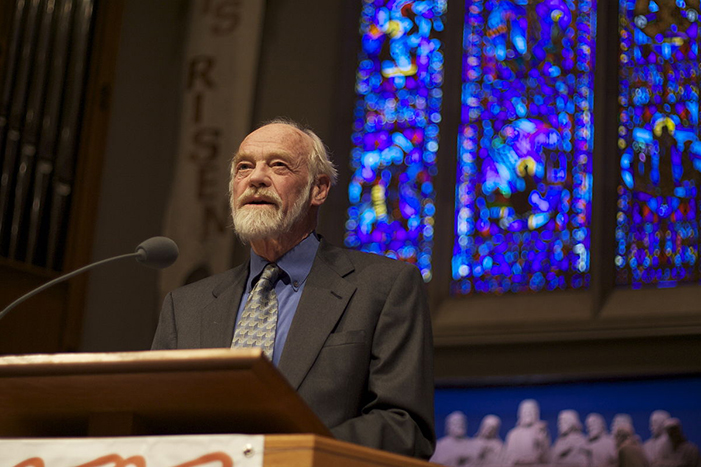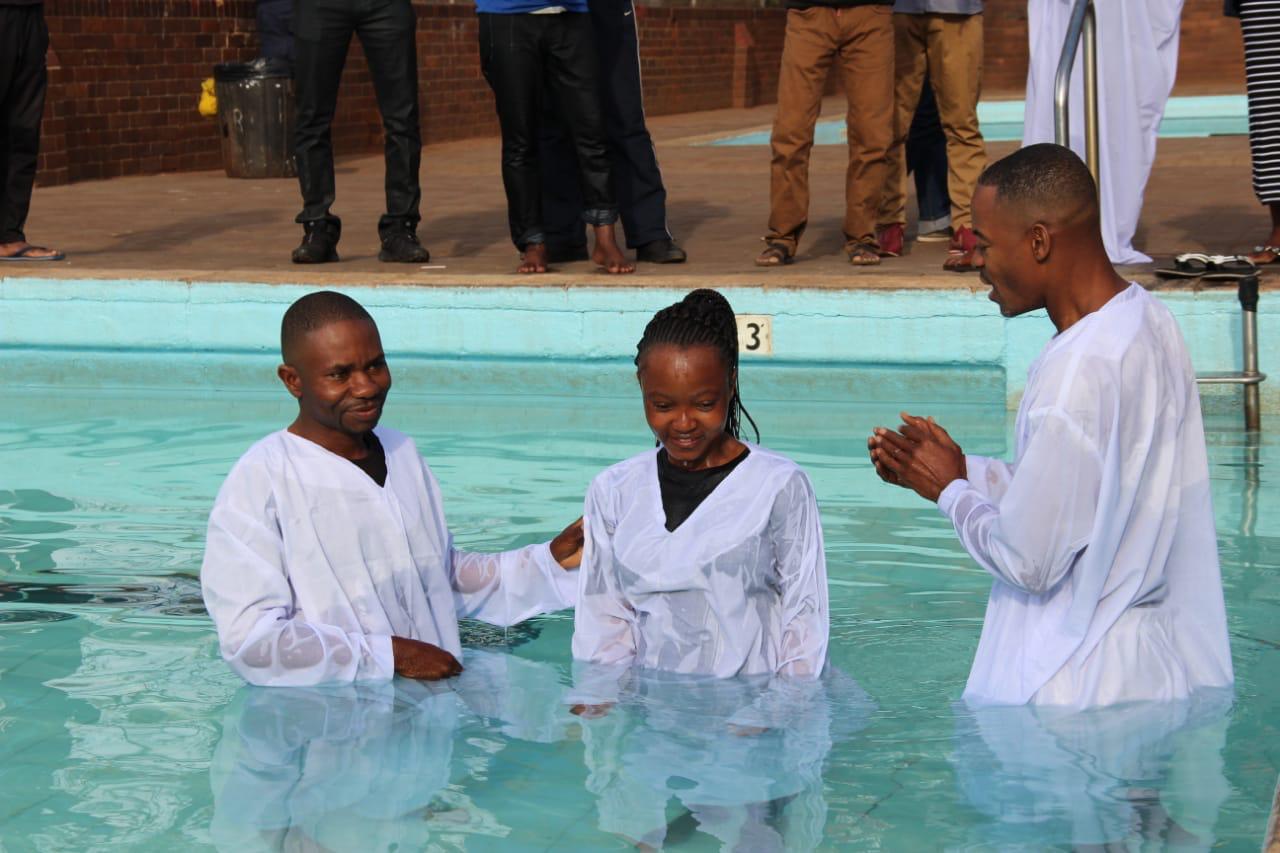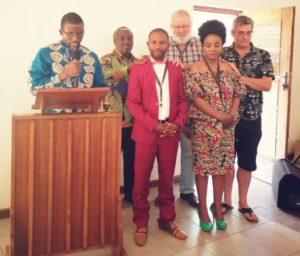
Almost one year ago, on October 22, 2018, the Christian community lost scholar, pastor, and Bible translator, Eugene Peterson. Peterson was a pillar for the Christian community and at age 85 he completed his “long obedience in the same direction.” Christianity Today interviewed eight different leaders to offer their reflections about Eugene. See the comments from Trygve Johnson below.
Pastoral ministry is serious, consequential work.
I first heard the name Eugene Peterson in college. My chaplain, after listening to me wrestle with a sense of calling, squinted like a doctor making a diagnosis, pulled a book from his shelf, and handed me The Contemplative Pastor. “Read this!” he said. I did. In Eugene’s words, I found a vision for pastoral life I had always hoped existed but did not know how to articulate.
Years later Eugene befriended me. He had recently retired to Montana. I was a young aspiring pastor, and he took me on, inviting me into a mentoring relationship through letters, conversations, books, and pilgrimages to Flathead Lake. This invitation changed my life and my ministry.
Eugene gave me a vision and a language for who I could be as a pastor. He restored honor and dignity to the calling of the pastor. Eugene revived a vision of a pastor as someone serious, intelligent, savvy, creative, playful, and prophetic. Eugene encouraged those in ministry to resist the seductive sirens of the pragmatic pastor, in favor of a ministry animated by the patient and cruciform witness of a long obedience in the same direction.
Through this encouragement, Eugene pulled me into a larger world of consequence. His words and vision helped me see and experience the wide-open country of salvation. Here, Eugene invited me to explore the geography of the Trinity, which expanded my imagination and bent my reason back into shape. The use of cliché or paint-by-numbers theology was unworthy of the work. The pastor, Eugene counseled, required a charged imagination, an earthy piety, with a double shot of humor! He showed me that a ministry at play in the expansive fields of the Triune God was a more interesting place to spend the day.
The key to this larger world was the Bible. Eugene showed me how to read with a scriptural imagination. He taught me that the goal of reading Scripture was not to know more, but to become more. His great lesson was that Scripture had everything to do with the neighborhood, because the neighborhood is where Christ shows up.
Maybe Eugene’s greatest legacy on my ministry was that he taught me to love by simply loving me. Eugene gave me time. He always wrote back. He never refused a call. He always welcomed me into his home. Never was I treated as an abstraction or a project to solve. He treated me as a friend. He showed me that healthy ministry requires, even demands, relationships where we can be known and understood.
Receiving the news of Eugene’s death feels like what the Fellowship of the Ring in the Tolkien novel of the same name must have experienced when they lost Gandalf. What do you do when your guide is gone? But Eugene taught us well, for he reminded us to practice resurrection. And so we carry the Message on! — Trygve Johnson, Hinga-Boersma Dean of the Chapel at Hope College
Comments
What a testimony. Eugene Peterson impacted scores of people with his life-on-life style of mentoring and friendship. He instructed and mentored even more through his prolific writing.
Certain lines stuck out in Johnson’s tribute. “Ministry at play in the expansive fields of the Triune God” is such a brilliant way of characterizing the context of pastoral ministry. It is finding the rhythm and dance steps that allow us to commune with Father, Son, and Spirit, while experiencing the peace, purpose and passion that flows from the divine relationship. It is joining in with what God is doing within our sphere of life and entering this divine participation that penetrates the human realm.
“Reading the Bible with a Scriptural imagination” is another choice line. As pastors and ministry leaders we don’t approach the scriptures with a clinical mindset attempting to exegete properly with the sole purpose of constructing a sermon. The Bible is God’s inspired word to us and ultimately points us to an engagement with the Living Word – Jesus. The words of the Bible should wash over us afresh each time we read the ancient words, and our imaginations should be re-ignited.
The final line that I want to highlight is “Scripture has everything to do with the neighborhood.” Pastoral ministry must navigate out from the private study, out from the sanctuary, and into the streets of the neighborhood. The Bible clearly communicates human nature and all its pitfalls; it communicates a broken world in need of deliverance, and ultimately it communicates about the Savior who is uniquely drawing all humanity unto himself and is in the process of redeeming all that is broken. This is the story that rings true for all peoples, in all places, at all times, and it needs to be proclaimed in all neighborhoods.
Thank you, Eugene Peterson, for a life well-lived, with long obedience in the same direction. And thank you GCI pastors for your long obedience in the direction toward Jesus and his eternal kingdom.
Greg Williams
P.S. In addition to The Message Bible, Eugene Peterson has contributed an entire series of books that help to guide and influence pastors in a true course. Here are a few titles of his books that are “must-reads” for any pastor who takes his/her calling seriously.
The Contemplative Pastor
Five Smooth Stones for Pastoral Work
Working the Angles: The Shape of Pastoral Integrity
The Unnecessary Pastor
The Pastor: A Memoir
Featured image credit: Eugene Peterson lecture at University Presbyterian Church in Seattle, Washington, sponsored by the Seattle Pacific University Image Journal, by Clappstar via Wikimedia Commons.











